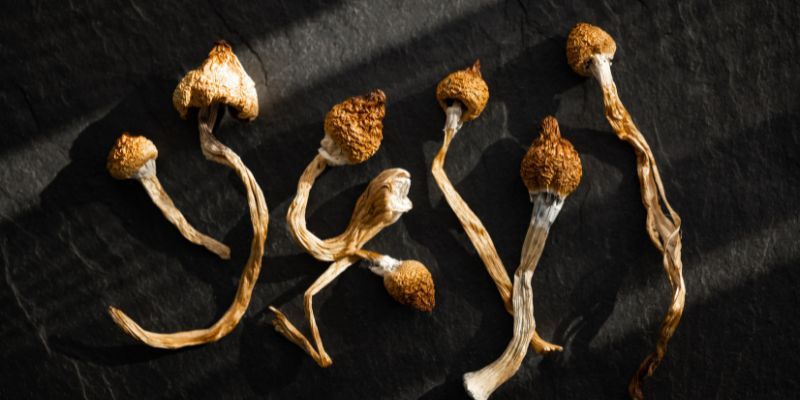
What is Psilocybin Therapy?
Psilocybin therapy involves using psilocybin, which is the psychoactive ingredient in psilocybin mushrooms, aka magic mushrooms, to treat a variety of mental health conditions. Psilocybin therapy, also known as psilocybin-assisted therapy, utilizes the psychedelic compound in a therapeutic setting to treat various disorders such as anxiety and depression, PTSD, obsessive-compulsive disorder, addictions, and psychosis.
What Is a Psilocybin Therapy Session Like?
Psilocybin-assisted therapy involves the ingestion of the psilocybin chemical while under the care of a therapist who facilitates the patient’s psychedelic journey in a safe and controlled environment. A typical session can last from 6 to 8 hours which is about the span of the full effect of the psilocybin dose. The general standard is for patients to experience the psychedelic journey with the guidance of a therapist one time, although in some cases, patients may have more than one psilocybin-assisted therapy session.
One goal of psilocybin therapy is to expedite emotional obstacles through a psychedelic journey as opposed to taking months or years of talk therapy to slowly acknowledge long-term problems. Psilocybin therapy may not be for everyone, although many people who have experienced little reprieve from depression and other mental health disorders with conventional treatment methods have experienced success in breaking through mental obstacles.
The History of Psilocybin Therapy
The consideration of using a psychedelic drug for the treatment of mental conditions might sound like something new age or on the fringe, although the use of psychedelics has been studied by John Hopkins University for decades. John Hopkins received the first regulatory approval in 2000 for psychedelic research, which was decades after the government banned psychedelic research and therapy in 1970. John Hopkins published the first research paper on the long-term, positive impact of psilocybin therapy in 2006, with many academic studies and research conducted since then.
John Hopkins has researched the benefits of psilocybin therapy to treat patients and provide a long-term, solid positive impact for a variety of conditions.
Who Can Psilocybin Therapy Help?
Psilocybin-assisted therapy is typically reserved for people with conditions or issues that have been refractory to conventional therapy methods. People with the following conditions have been shown to receive significant benefits from psilocybin therapy:
Chronic illness – people with a chronic or life-threatening disease such as cancer have been shown to experience an improvement in depression and anxiety with a single dose of psilocybin. People in this category experienced a reduction of hopelessness, anxiety, and depression and improved attitudes about their mood, life, and/or a sense of spirituality.
Depression and anxiety – depression and anxiety can be extremely debilitating for many people and can negatively impact their ability to go about daily activities. People with depression or anxiety that have been resistant to conventional treatment have found improvement with the use of psilocybin therapy, with one study showing an improvement in at least 54% of participants who were no longer termed as being depressed after four weeks. Another randomized clinical trial on the effects of psilocybin-assisted therapy to treat major depressive disorder (MDD) concluded that psilocybin therapy was efficacious in treating MDD and extended previous results showing the benefits of psychedelic intervention for patients with major depression and life-threatening illness.
Post Traumatic Stress Disorder, PTSD – psychedelic, psilocybin-assisted therapy has been shown to be effective to help people with PTSD, which can disrupt all facets of life when left untreated. According to a study published by the National Institutes of Health which reviewed the potential for psychedelic treatment of PTSD, the availability of psychedelics could bring in a new era of evidence-based treatment options for PTSD patients. Psychedelic, psilocybin-assisted therapy has allowed many PTSD patients to recover with positive results.
Addiction – psilocybin therapy has also been shown to be beneficial to treat people with various addictions such as smoking, alcohol, or other drug addictions.
As research continues to gain ground on the benefits of psychedelic therapy, people suffering from these conditions and others have hope for an alternative treatment and recovery.

